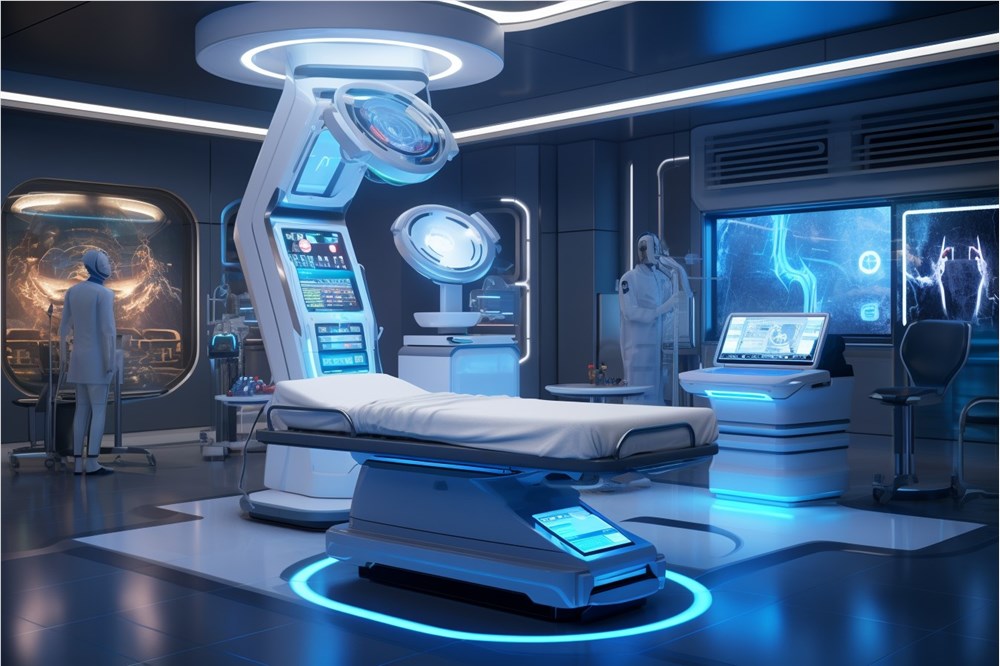Recently, a study published in the journal "JAMA Network Open" has attracted widespread attention: OpenAI's ChatGPT-4 performed excellently in medical diagnostic accuracy tests, with a diagnostic accuracy rate of up to 90%, even exceeding the use of this tool for assisted diagnosis. of doctors (76%). The study tested 50 doctors and used real, unpublished, complex cases to effectively avoid the influence of prior knowledge. The findings not only highlight the huge potential of artificial intelligence in the medical field, but also reveal the challenges that doctors may face when using AI tools, such as overconfidence in their own diagnosis and underestimation of the capabilities of AI tools.
In recent years, the application of artificial intelligence in the medical field has continued to expand. Recently, a study showed that ChatGPT-4, a chatbot developed by OpenAI, surpassed doctors in diagnostic accuracy, triggering widespread discussion and concern.
The study, published in the journal JAMA Network Open, tested the performance of 50 doctors on six complex cases. The results showed that doctors who used ChatGPT's assistance scored an average score of 76%, while those who did not use the tool only scored 74%. Shockingly, ChatGPT achieved a diagnostic accuracy of 90% when used alone.

Picture source note: The picture is generated by AI, and the picture authorization service provider Midjourney
To avoid prior knowledge of the participants or the AI model, the researchers used real, unpublished case histories. The cases include complex medical conditions such as cholesterol embolism, a rare disease that is often overlooked. Using ratings from independent medical experts, doctors provide possible diagnoses, rule out alternatives and recommend next diagnostic steps. Although many doctors are powered by ChatGPT, they still struggle to match the performance of AI.
The research revealed two main problems: First, doctors tend to stick to their initial diagnoses, especially when ChatGPT's recommendations contradict their beliefs. Second, many doctors do not take full advantage of the capabilities of AI tools, often asking only narrow questions without fully analyzing the case history.
Experts believe that modern AI tools have shown great potential by using language models to conduct detailed analysis of complex cases. Unlike early computer-aided diagnosis, modern AI tools do not attempt to simulate human reasoning but excel by processing and predicting language patterns.
Still, experts warn that integrating AI into medical workflows won't be smooth sailing. Common challenges include a lack of AI training, physician resistance to AI, and ethical and legal concerns. These factors may hinder the potential of AI as a "doctor extension tool" and affect its role in improving diagnostic accuracy.
When researchers analyzed chat logs, they found that many doctors ignored ChatGPT's recommendations. This resistance stems in part from overconfidence in their own expertise, but also from a lack of understanding of AI's diagnostic capabilities.
The results of this study highlight the importance of collaboration between AI developers and medical professionals to enhance trust and usability. In the future, the role of AI in medicine may extend beyond diagnosis to areas such as personalized treatment planning and patient management. Although AI is a remarkable tool, how to effectively integrate it into medical practice still requires a lot of effort.
Highlight:
ChatGPT-4 showed an accuracy of 90% in medical diagnosis studies, surpassing doctors using ChatGPT to assist 76%.
Doctors are often overconfident in their initial diagnoses and ignore AI recommendations.
The potential of AI tools in healthcare is huge, but lack of training and trust are currently major challenges.
All in all, this research provides a new perspective on the application of artificial intelligence in the medical field and also raises many issues that need further exploration. In the future, effective collaboration between AI and doctors will be the key to improving the accuracy and efficiency of medical diagnosis. Further research is needed to address ethical, legal, and physician acceptance issues to better realize the potential of AI in the medical field.